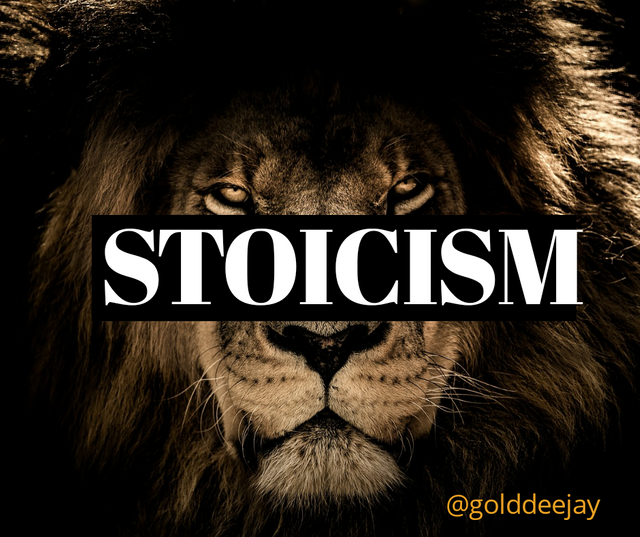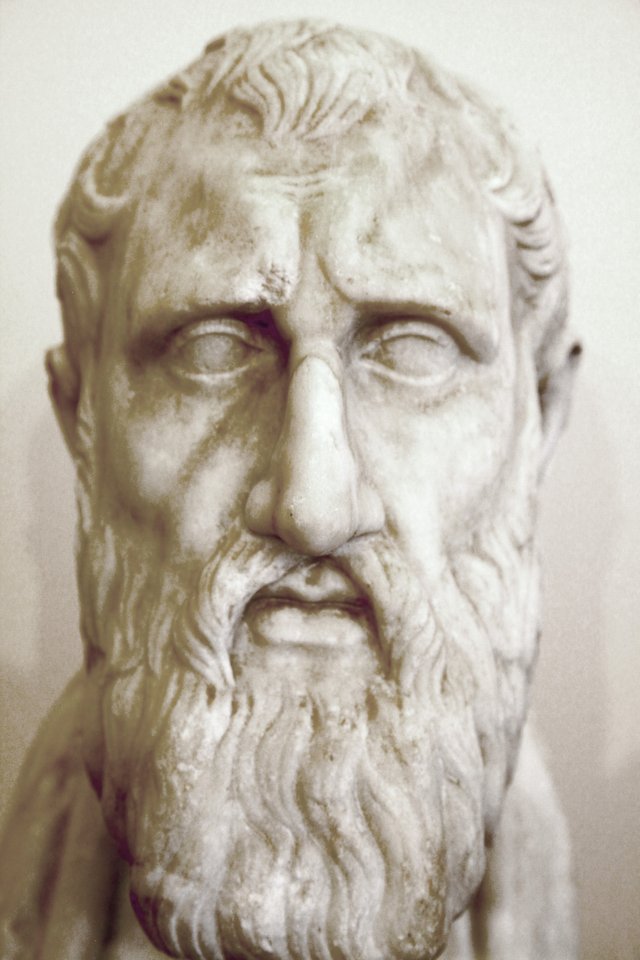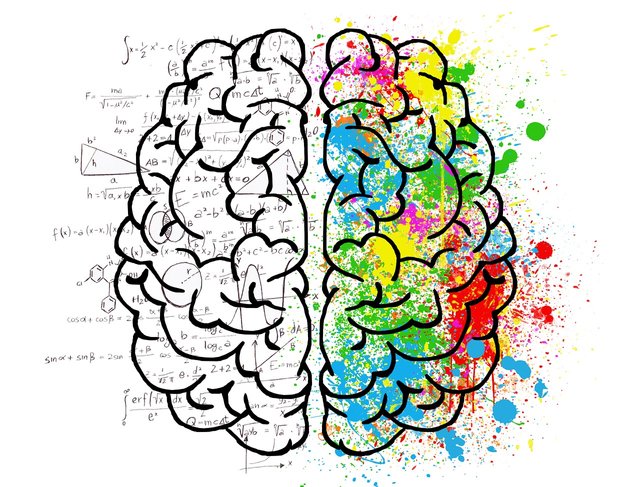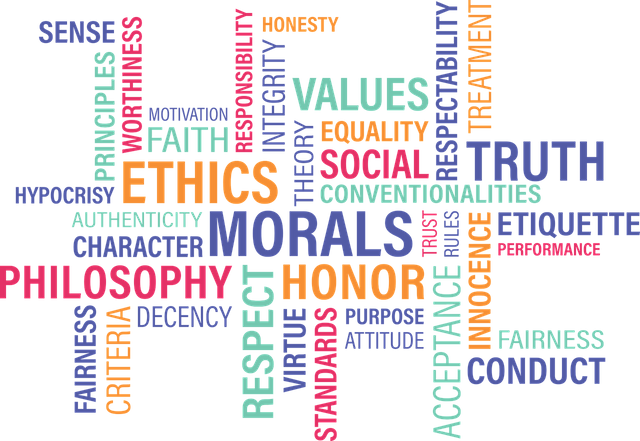
Introduction and History
Stoicism is one philosophy I adopted before I even got to know the deep meaning behind it. I can not really place exactly when it all started with me but I am thinking it was at the most turbulent period of my life. With so many disappointments from people I depended on and trusted. Situations I thought I had under control went haywire, I knew I had to employ some indifference, to keep my sanity and get out of myself to reduce the pains while I got things0 sorted out. Stoicism is never to be confused with denial. And definitely different from cynicism.
Stoicism is an ancient philosophy, developed in Greek by Zeno of Citium around 300 BC. Zeno who is acclaimed to be the founder of Stoicism, was a wealthy merchant who lost all his wealth after being shipwrecked in Athens.

He opened himself to the learning of different teachings of others including Socrates, even teachings like cynicism before creating and teaching his followers his own philosophy of stoicism with the main virtues of tolerance and self-control. Zeno laid the strong foundation of stoicism when he started teaching his followers at the Stoa Poikile (where the term stoic was taken from), meaning Painted Porch, in the middle of Athens. None of Zeno's work was documented or not discovered but many of his ideas were referenced by his followers. His Successor Cleanthes and Chrysippus further developed his works. Other great philosophers who preserved the ideas of Zeno includes, Gaus, Seneca, Rufus, Musonius, Epictetus and Emperor Marcus Aurelius, who worked extensively on the philosophy and his writings 'Meditation' which is widely accepted by many and also criticized by some philosophers. Taking on the works of each of these of these stoic philosophers will be beyond the scope of this post as one can easily write a whole book based on the works of each of them. Though School of stoicism has extinct. However different teachings from stoicism are been adopted to the present day.

Tenets Of Ancient Stoicism
The word stoic is generally used for someone who stays calm or impassive in the face of problems, or indifferent to pleasure and pain. Though the control of emotions is a key part of stoicism, there are other important parts. Focus on the control of emotions or indifference to pain and pleasure as the word is modernly defined does not accurately represent the ancient meaning of stoicism. The philosophy consists of three parts which are Logic, Physics and Ethics. Stoics consider the three parts to be interrelated and all work together for the person's happiness and overall well being.
Physics
The ancient Stoic's philosophers believe based the physics of stoicism on the logic that everything whether tangible or intangible exist in unification. The whole universe is one. Nothing is intangible, even things that appear intangible such as feelings and thoughts have ways of manifesting themselves in the physical through expressions such as smile, laughter, frown, cry and others.
Nature (god), the mind, the body, the soul all exist and work together. They suggested the universe is made up of God or logos is responsible for the generation of the production process of the four elements of fire, air (responsible for forming breath), earth and water (the passive and physical part of the earth).

Logic
This part of stoicism relates to the verification of knowledge to test for validity and limits by adopting the expertise of others or judgement of human through our cognitive experience. According to stoics, the human mind is constantly receiving sensory impressions or pulsation which it interprets and stores. However, the mind has a job of examining and classifying these impressions so as decipher falsehood from the truth.

The mind is then able to determine which impressions to accept and work on and which one to reject as falsehood or misinformation. The mind is like a clean slate at birth and forms its cognitive 'expertise' from different sensory impressions which it interprets and stores as memories and concepts over time. They also proposed that the reasoning of the mind is helped to develop by the use of complex language in communication which differentiates humans from other animals.
Ethics
This part of stoicism is what modern day stoics are all about. Human is always in pursuit of pleasure. This pursuit is instinctive and the basic of human nature. We are passionate about achieving pleasure. As a kid, we instinctively wanted to get everything we desired and we threw tantrums when we didn't, we simply let our emotions took control and gave no way to reason.
Stoicism is about freedom from this passion, but to focus on the pursuit of reason. As human reach adulthood, some level of rationality and sense of virtue and responsibility start to prevail over emotions.

Stoics believe virtues are good and vices are bad, those outside this two qualities are indifference. That indifferences are external and only require passive reactions. They are not relevant and we should not depend on them for our happiness. Suffering and unhappiness set it as a result of having a passion for indifference. Pursuing indifference lead to unhappiness and pursuing evil, instead of virtues. No thanks to human's ignorance of universal reason. All negative emotions such as fear, anxiety, sorrow, jealousy and others are the result of man neglecting this reasons and desiring things that are not in accordance with nature.
To the Stoics, for a man to live in harmony and have true happiness he must learn to see events and relate with them from the perspective of nature (known as logos) rather than his individual's perspective. They believe in seeing value in all people regardless of their social standing and wealth. Stoicism taught we should not get too deep in our own self-centeredness which is important for our happiness and been in harmony with nature, which includes other human beings.

Modern Stoicism
Modern philosophers of the 20th and 21st-century focus more on the virtue ethics of the philosophy while leaving out the languages and 'rational nature' concept they consider ancient and do not hold water in the present. The work of modern day philosophers results in the development of Rational Emotive Behavior therapy and later cognitive Behavioral therapy. Most modern philosophers found the metaphysics part of the ancient philosophy questionable. They questioned the claim of everything concerning nature to be 'predesignated' good and work for human's overall well being.
However many influencers, achievers and leaders from George Washington to Nelson Mandela have use stoicism as a tool to use solve achieve their greatest triumphs in the face of obstacles and negative human nature. Stoicism is one of the most practical philosophy, one can literally pick a wisdom from and start applying it to his life immediately. Stoicism is not the philosophy you learn in formal education settings but a practical ethical way of life for having courage, virtues, control in all forms and harmony with the bonus of having our 'preferred indifference' as an add-on.
Thanks for taking time to read.

Images are Copyright Free From Pixabay and Wikimedia 1, 2, 3, 4
The Basics Of Philosophy
Stoicism 101
Wikipedia
DISCLAIMER: dropahead Curation Team does not necessarily share opinions expressed in this article, but find author's effort and/or contribution deserves better reward and visibility.
to maximize your curation rewards!
with SteemConnect
12.5SP, 25SP, 50SP, 100SP, 250SP, 500SP, 1000SP
Do the above and we'll have more STEEM POWER to give YOU bigger rewards next time!
News from dropahead: How to give back to the dropahead Project in 15 seconds or less
Downvoting a post can decrease pending rewards and make it less visible. Common reasons:
Submit
Hi, we have voted on your post because you have posted your article to either food, recipe, recipes, cooking or steemkitchen #tag. Steemkitchen is a brand new initiative where we want to build a community/guild focused purely on the foodie followers and lovers of the steem blockchain. Steemkitchen is out of the conceptual phase and growing each day. We would love to hear your thoughts and ideas.
We are almost ready to Launch the first Decentralized Recipe and Food Blog Website that will utilize the Steem BlockChain and its community to reward contributions by its members.
Please consider joining us at our new discord server https://discord.gg/XE5fYnk
Also please consider joining our curation trail on https://steemauto.com/ to help support each other in this community of food and recipe lovers.
Kind Regards
@steemkitchen
Ps. Please reply “No Vote” if you prefer not to receive this vote and comment in the future.
Downvoting a post can decrease pending rewards and make it less visible. Common reasons:
Submit
Congratulations! This post has been upvoted from the communal account, @minnowsupport, by golddeejay from the Minnow Support Project. It's a witness project run by aggroed, ausbitbank, teamsteem, theprophet0, someguy123, neoxian, followbtcnews, and netuoso. The goal is to help Steemit grow by supporting Minnows. Please find us at the Peace, Abundance, and Liberty Network (PALnet) Discord Channel. It's a completely public and open space to all members of the Steemit community who voluntarily choose to be there.
If you would like to delegate to the Minnow Support Project you can do so by clicking on the following links: 50SP, 100SP, 250SP, 500SP, 1000SP, 5000SP.
Be sure to leave at least 50SP undelegated on your account.
Downvoting a post can decrease pending rewards and make it less visible. Common reasons:
Submit
Sorry was busy setting my algorithm and this one slipped through
Downvoting a post can decrease pending rewards and make it less visible. Common reasons:
Submit
Okay, now i get it. Thanks for the upvote anyway. 😄
Downvoting a post can decrease pending rewards and make it less visible. Common reasons:
Submit
I think it's a psychological principle based on the control of the mind, this content is interesting. Very good publication, greetings!
Downvoting a post can decrease pending rewards and make it less visible. Common reasons:
Submit
I am glad you like it. Thank you.
Downvoting a post can decrease pending rewards and make it less visible. Common reasons:
Submit
Nice post bro
Downvoting a post can decrease pending rewards and make it less visible. Common reasons:
Submit
"air (responsible for forming breath), earth and water (the passive and physical part of the earth).
The breath (which the soul is a part of) and the earth (which the body is part of) ".
Really good post but the relation of air to breath to soul isn't logical (which is everything stoicism stands for), Air is matter while the soul(if its a thing) is more of the concept you explained here "The mind is like a clean slate at birth and forms its cognitive 'expertise' from different sensory impressions which it interprets and stores as memories and concepts over time." ,The you in you ,that part of you that isn't your body is the collection of your experiences (all data recorded from your senses),your thought and your emotions .
Downvoting a post can decrease pending rewards and make it less visible. Common reasons:
Submit
Well accomplishing that will surely require a lot of mental discipline, and I can see it is related to seeing reality in an objective way am I right?
Being indifferent to pleasure is particularly quite hard, because a lot of people would think that our reason to live is to be happy, which can be considered as something pleasurable.
What is the reason to live according to Stoicism?
Downvoting a post can decrease pending rewards and make it less visible. Common reasons:
Submit
Yea...it is takes a lot of mental discipline. But it get easier. And yea, like looking at events objectively, from the perspective of others.
Pleasure in this context is attached the 'external'. One can derive pleasure by eating good or getting a new toy. It makes him happy for a limited time, then he is on to getting a new one. Happiness should come from within. Marcus Aurelius, an emperor, one of the famous stoic philosopher, talked about meditation. It is a way to get away from the external for a while, it helps keep your mind and soul at rest, and refreshed.
The first thing is for one to be at peace himself, free from uneccessary negative emotions that help nobody's cause. Applying ethics and logic will help achieve true happiness and be in harmony with nature (the world around him).
Downvoting a post can decrease pending rewards and make it less visible. Common reasons:
Submit
Amazing introduction to stoicism!
Thanks to @seyiodus, this post was resteemed and highlighted in today's edition of The Daily Sneak.
Thank you for your efforts to create quality content.
Downvoting a post can decrease pending rewards and make it less visible. Common reasons:
Submit
Thank you @thedailysneak for the appreciation.
Downvoting a post can decrease pending rewards and make it less visible. Common reasons:
Submit
Congratulations! 100% Upvote 4!

https://steemit.com/contest/@otage/winner-reverse-acronym-contest-ix
Downvoting a post can decrease pending rewards and make it less visible. Common reasons:
Submit